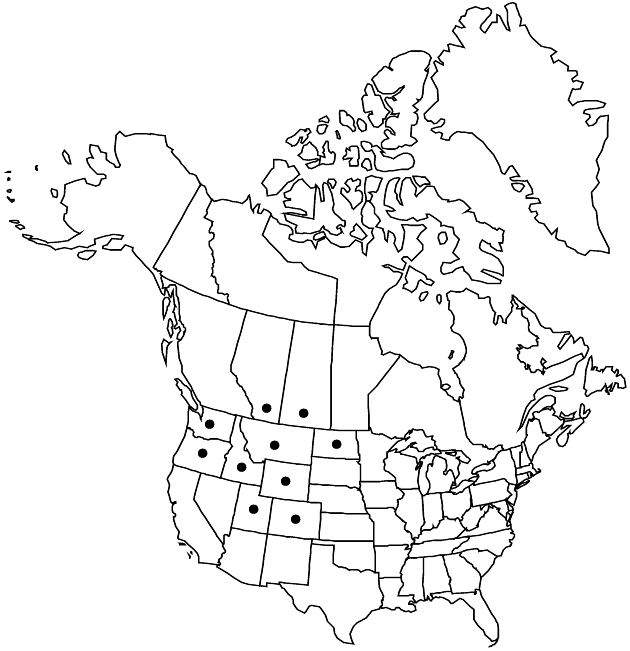Crepis runcinata subsp. hispidulosa
Publ. Carnegie Inst. Wash. 504: 96. 1938.
Endemic
Basionym: Crepis runcinata var. hispidulosa Howell ex Rydberg Mem. New York Bot. Gard. 1: 461. 1900
Revision as of 19:51, 5 November 2020 by imported>Volume Importer
Plants 25–50 cm. Leaves: petioles narrowly winged; blades obovate, 2.5–8 cm wide, margins remotely toothed, pinnately lobed, or entire (teeth not prominently white-tipped, apices obtuse), faces glabrous or glandular-hispid. Heads 10–30. Involucres 8–12 mm. Phyllaries lanceolate, apices acute, faces strongly or finely glandular-hispid. Cypselae brown, 3.5–5 mm, not beaked; pappi 4–8 mm. 2n = 22.
Phenology: Flowering Jun–Jul.
Habitat: Dry or moist alkaline meadows
Elevation: 1300–2500 m
Distribution

Alta., Sask., Colo., Idaho, Mont., N.Dak., Oreg., Utah, Wash., Wyo.
Discussion
Subspecies hispidulosa is distinguished by its relatively large, obtuse leaves and relatively numerous heads with glandular-hispid phyllaries.
Selected References
None.
Lower Taxa
None.